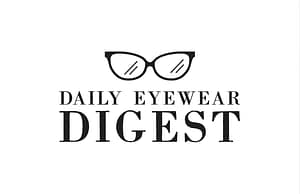Air pollution and allergens are two major environmental factors that can adversely affect eye health. With the growing levels of air pollution in urban areas and seasonal allergens in various regions, understanding how to protect your eyes is crucial for maintaining long-term vision and comfort. This guide will cover practical strategies, scientific insights, and medical advice on protecting your eyes from air pollution and allergens, enhancing your overall quality of life.
Understanding the Impact of Air Pollution on Eye Health
Air pollution is a serious health concern in many parts of the world, particularly in densely populated cities. Beyond its well-known effects on respiratory and cardiovascular health, air pollution can also cause significant harm to the eyes.
Common Air Pollutants Harmful to Eyes
Air pollutants such as fine particulate matter (PM2.5), smoke, dust, and vehicle emissions can enter the eyes and cause irritation. Fine particles, which are smaller than 2.5 microns, can bypass the body’s natural defenses, like eyelashes and tears, and directly contact the eye’s surface. Other pollutants like sulfur dioxide, nitrogen dioxide, and ground-level ozone further exacerbate eye irritation.
How Air Pollution Irritates the Eyes
The eyes are highly sensitive organs, and air pollution triggers a variety of responses. When exposed to airborne pollutants, the body produces oxidative stress that damages cells in the cornea and conjunctiva. The result is often redness, tearing, itching, and a burning sensation. In some cases, inflammation caused by prolonged exposure can lead to chronic conditions.
Long-Term Effects of Air Pollution on Vision
Chronic exposure to air pollution can lead to more serious eye conditions. Dry eye syndrome is particularly prevalent, as pollutants disrupt the tear film and reduce moisture in the eyes. Conjunctivitis, commonly known as pink eye, can be triggered by air pollution, leading to eye discomfort and increased sensitivity. Long-term exposure may even lead to vision loss if left untreated.
Allergens and Their Impact on Eye Health
While pollution is a significant concern, allergens pose an equally troubling threat to eye health. Seasonal allergies, triggered by pollen, mold spores, dust mites, and pet dander, can cause eye irritation, discomfort, and even vision problems.
Types of Common Allergens that Affect Eyes
During allergy season, outdoor allergens such as pollen from trees, grasses, and weeds become airborne and can enter the eyes, causing allergic reactions. Indoor allergens like pet dander, dust mites, and mold can also contribute to chronic eye irritation.
Allergic Reactions in the Eyes
When allergens come into contact with the eyes, they trigger the immune system, releasing histamines that cause inflammation. Common symptoms include red, watery eyes, itching, and swelling. In severe cases, people may also experience light sensitivity, blurred vision, or discharge from the eyes, making it difficult to carry out daily activities.
Preventative Measures Against Air Pollution for Eye Health
Preventing eye damage from air pollution involves a combination of protective strategies and good eye care habits.
Wear Protective Eyewear Outdoors
One of the most effective ways to protect your eyes from air pollution is by wearing sunglasses with UV protection. Not only do sunglasses block harmful ultraviolet rays, but they also prevent dust, smoke, and other particles from reaching your eyes. In areas with high pollution, wearing goggles or wrap-around glasses can offer additional protection.
Create a Safe Indoor Environment
Air quality indoors can be just as critical as outdoor air, especially in urban settings. Using air purifiers with HEPA filters can remove pollutants like dust and pollen from the air. Maintaining the right indoor humidity levels can prevent your eyes from becoming too dry. Additionally, keeping windows closed during high pollution days and allergy seasons can further reduce your exposure to harmful particles.
Keep Your Eyes Clean and Moisturized
Regularly washing your face and rinsing your eyes with clean water can help remove pollutants and allergens that may have settled on your skin or eyelashes. Artificial tears and lubricating eye drops can also help keep your eyes moist and reduce discomfort, especially after exposure to pollution.
Follow the 20-20-20 Rule
Staring at screens for extended periods of time can strain your eyes and exacerbate the effects of pollution. The 20-20-20 rule is a simple guideline: every 20 minutes, look at something 20 feet away for 20 seconds. This helps reduce eye strain and gives your eyes time to relax and rehydrate.
Managing Eye Allergies Effectively
Allergy management is essential to prevent chronic eye irritation and reduce the severity of symptoms during peak allergy seasons.
Identify and Minimize Exposure to Triggers
Knowing what triggers your allergies is the first step in managing them. If pollen is your main allergen, try to avoid outdoor activities during peak pollen times, typically in the early morning and late afternoon. Keeping windows closed and using air filters can also reduce the presence of indoor allergens like dust mites and mold.
Over-the-Counter and Prescription Eye Drops
There are many over-the-counter and prescription eye drops available that can help alleviate allergic eye symptoms. Antihistamine eye drops can reduce inflammation, while lubricating drops provide relief from dryness and irritation. In more severe cases, a doctor may prescribe anti-inflammatory medications to manage symptoms.
Natural Remedies to Soothe Eye Irritations
For those looking for natural alternatives, cold compresses can reduce swelling and discomfort. Saline rinses are another excellent option to flush out allergens and pollutants from the eyes. Herbal remedies, such as chamomile or green tea eye washes, can also provide soothing relief.
Nutritional and Lifestyle Changes for Eye Protection
Maintaining a healthy diet and making specific lifestyle adjustments can significantly improve your eye health, reducing the impact of pollution and allergens.
Essential Nutrients for Eye Health
Certain nutrients are vital for maintaining healthy eyes. Vitamins A, C, and E are powerful antioxidants that protect the eyes from oxidative damage. Omega-3 fatty acids, commonly found in fish, help reduce dry eye symptoms, while lutein and zeaxanthin, found in leafy greens, can protect the eyes from the harmful effects of air pollution.
Hydration and Its Role in Preventing Dry Eyes
Drinking plenty of water is essential for overall eye health, especially if you’re frequently exposed to pollution. Proper hydration helps maintain tear production, which keeps your eyes moist and flushes out contaminants.
Limiting Exposure to Digital Eye Strain
Excessive screen time can exacerbate the effects of both allergens and pollution. Adjusting your screen’s brightness, reducing blue light exposure, and using anti-glare filters can help minimize digital eye strain.
Eye Care During Allergy Seasons
Allergy seasons can be particularly tough on the eyes. During these times, it’s crucial to adopt specific strategies to protect your vision.
Managing Seasonal Allergy Symptoms
Over-the-counter antihistamines can help reduce the body’s reaction to allergens. Wearing a hat and sunglasses outdoors can minimize the amount of pollen that reaches your eyes. Additionally, avoiding outdoor activities during high pollen times can prevent flare-ups.
Safe Contact Lens Practices During Allergy Seasons
If you wear contact lenses, allergies can make wearing them uncomfortable. It’s essential to clean your lenses thoroughly and consider switching to daily disposable lenses to minimize allergen buildup. If irritation persists, consider wearing glasses until symptoms subside.
When to See an Eye Specialist
While many eye issues related to pollution and allergens can be managed at home, there are times when professional help is necessary. If you experience persistent redness, dryness, or a noticeable change in your vision, it’s important to consult an eye specialist for a comprehensive examination.
Long-Term Eye Care Strategies for Urban Dwellers
Living in an urban environment comes with unique challenges for eye health, particularly due to higher levels of pollution.
Adapting to High-Pollution Urban Environments
In heavily polluted areas, wearing face masks with built-in eye protection can reduce both respiratory and eye irritation. Planning outdoor activities during low-pollution times and staying indoors on high pollution days are also effective strategies.
Regular Eye Exams and Monitoring Eye Health
Routine eye exams are crucial, especially for those living in polluted cities. Eye exams can detect early signs of damage caused by pollution or allergens, ensuring timely intervention and preventing long-term vision problems.
Conclusion
Protecting your eyes from air pollution and allergens requires a proactive approach, combining preventative measures, lifestyle adjustments, and regular eye care. By understanding the risks and implementing these strategies, you can safeguard your vision and maintain your overall eye health.

